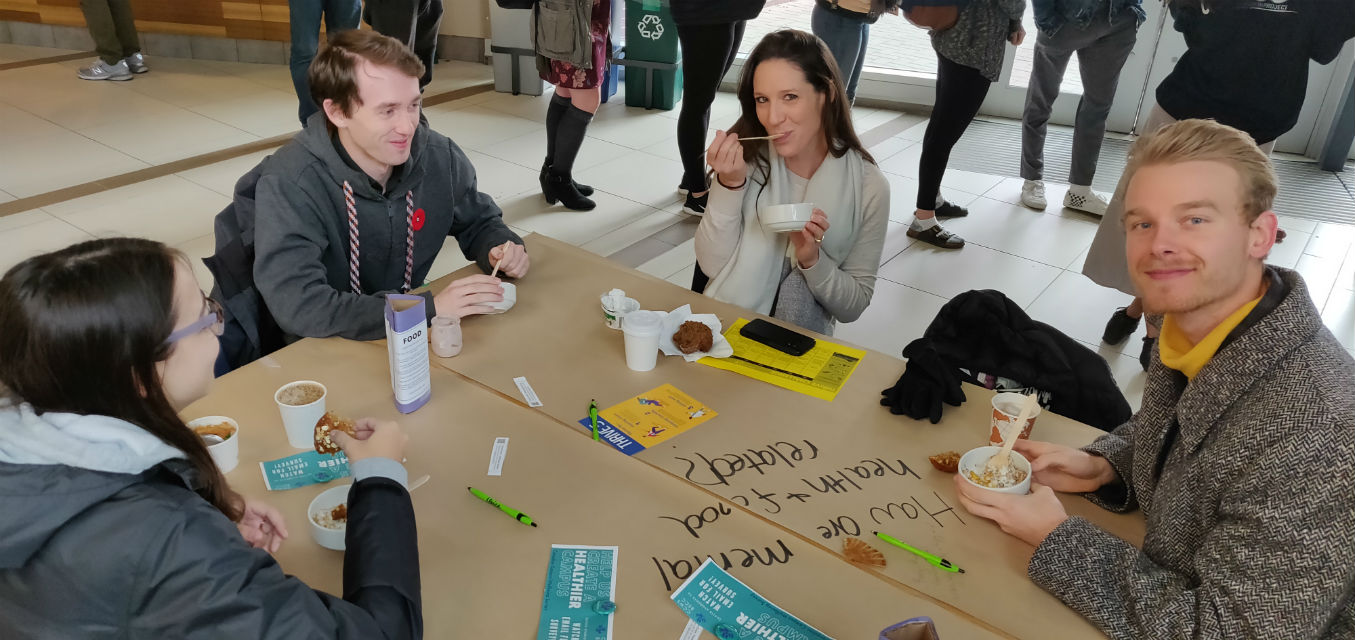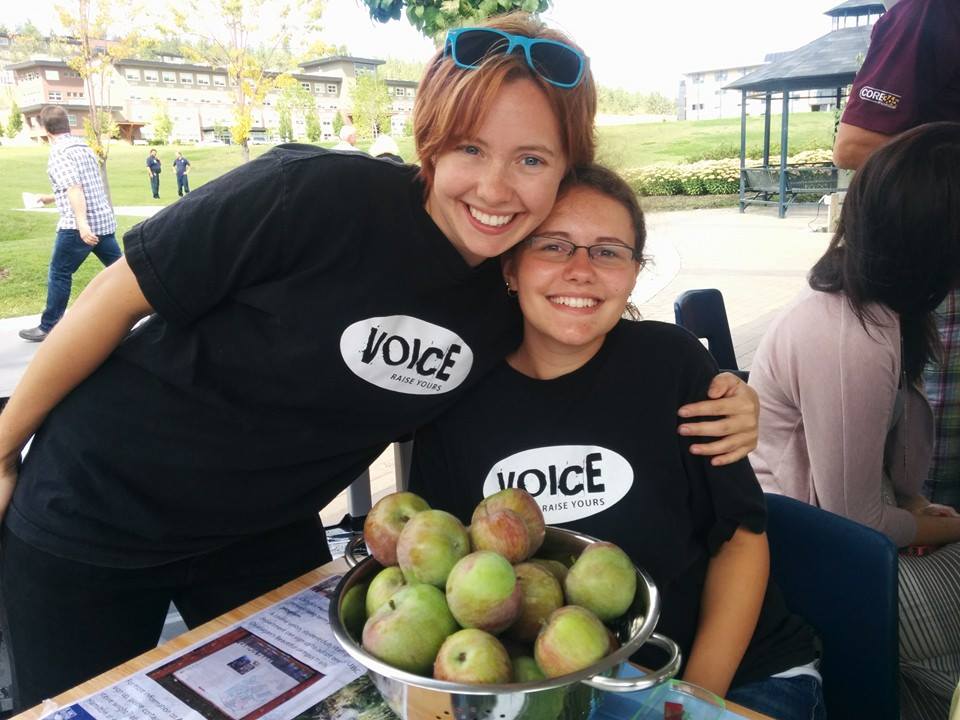VOICE RESEARCH 5

The primary goal of VOICE is to facilitate and promote healthy living on the UBCO campus through the development and design of a health-promoting campus.
The purpose of VOICE 5 is to explore systemic factors (i.e., policies, processes, criteria, structures) at UBC Okanagan that support and hinder student food insecurity. Our goal is to use the findings to support our campus community in taking action to improve student food security at UBCO.
VOICE 5 (2019-2021)
Food Security at UBCO:
What’s your recipe?
Description
The aim of VOICE 5, Food Security at UBCO: What’s your recipe?, is to engage with our campus community in understanding the lived-experience of student food insecurity and system level barriers and facilitators to food security on campus, adding to the evidence-base for identifying priorities and opportunities for actions to reduce student food insecurity.
Objectives
- Gain an in-depth understanding of the system level factors influencing campus food security, gather feedback on proposed new initiatives related to food security at UBC, and invite suggestions for improving student food security on our campus.
- Provide inclusive opportunities for individuals of all backgrounds, ethnicities, abilities, sexual orientation, and identities to be involved in the research and to have their voices heard.
- Disseminate results to campus community members and additional key stakeholders to support campus food security and form action groups to address issues identified.
Significance
The topic of food insecurity is a growing concern for university students. In January 2019, the Undergraduate Experience Survey (UES) included a 6-item food insecurity measure validated for use with the general Canadian population. The prevalence of food insecurity among UBCO undergraduate respondents was 42.3% – a rate that is both significantly higher than the general population and in line with reported prevalence in previous VOICE research and at other Canadian post-secondary institutions. Food insecurity (especially over many years) increases the risk of poor physical and mental health in university students because of stress and poor diet quality. Being food insecure is also of particular concern because of the negative impact it has on student learning, academics and work outcomes over time. Food + Nutrition is one of six priority areas in the UBC Wellbeing Strategic Framework . UBC is committed to improving access to diverse, nutrition, safe and culturally acceptable food on our campuses and views this as crucial to supporting student success, health and wellbeing.
Methods
The VOICE research project uses a methodological framework that includes: community-based participatory action research [CBPAR] methods, settings-based health promotion strategies and student/non-student partnerships. Data are collected using a variety of approaches including table talks (focus groups) and interviews. Once data collection and analysis are complete, results will be shared with the campus community for collective action. The VOICE 5 research project was approved by the UBCO Behaviour Research Ethics Board.
Team and Community Participation
The VOICE 5 team is engaging students, staff, and faculty on the UBC Okanagan campus to hear about: the lived experience of students who are household food insecure; experiences navigating campus systems that influence food security (e.g., policies and practices related to meal plans, availability of affordable food/housing, student finances, etc.); and suggestions regarding UBC’s role in supporting both student and campus food security. Undergraduate students are engaged as co-researchers, often receiving course credit. Research practicum opportunities are also available.
Reports
Qualitative data from this project will complement and enrich the food security data collected via the Undergraduate Experience Survey (UES) in February 2019 and the Canadian Campus Wellbeing Survey (CCWS) in November 2019 (results pending). VOICE 5 results will be shared with the campus community for collective action. Preliminary themes relate to managing hunger and finances, cost of food and living expenses for students, food skills, community aspects of eating, stigma of food insecurity, built environment impacts on food security, and UBC’s role in supporting student and campus food security.
Some quotes from the Table Talks:
“The first thing that goes through [my mind] when I have financial troubles, it’s always just like, ‘Well, I can eat less.’ Because you know everything else you need…you need textbooks. But food, you know, you can eat a little less, you won’t die.” (LGBTQ2IA+ student)
“You would not believe so many of my friends saying like ‘Oh yeah I just didn’t eat last night’ in such a funny, casual way. Or ‘Oh I lived off of instant noodles for like two weeks.’” (International Student)
“I tried to spend only nine dollars a day on the meal plan because I was like if I do that I can stretch it out like way longer. I couldn’t do that, I had to double it. I tried 18 dollars a day. EVEN that like I was going over 18 dollars a lot of time. So sometimes I just wouldn’t eat.” (Student on a meal plan)
